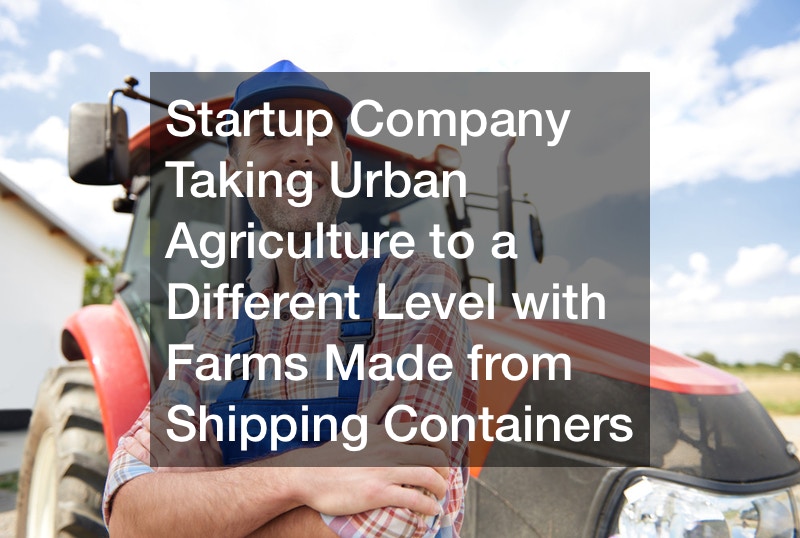Startup Company Taking Urban Agriculture to a Different Level with Farms Made from Shipping Containers
There are various reasons why people choose to buy shipping containers. You can have a portable office container or a workshop by crafting a 20 foot insulated shipping container into a full-sized luxury office. Nevertheless, for whatever reason you might be needing a shipping container, it is important to consider the following tips before buying one.
Quality of the Container
Owning a shipping container can help you in many ways. You can use it for storage purposes or convert it into a workshop. It can provide container storage solutions that you want for your workshop items. For that reason, make sure you evaluate the quality of the container. You wouldn’t want to buy one that will serve you for a year only to be worn-out.

New or Used Container
The two options can do you good depending on the reason for your purchase. Depending on your budget, you can buy a used 40 ft shipping container but consider evaluating its quality and current condition. It mustn’t have dents. However, buying a new container can be the best choice.
Cost of the Shipping Container
The containers come at different prices. This depends on their sizes, the metal’s quality, and whether it is new or used. If you need a cargo worthy container, you might be required to consult a good dealer who will sell to you at a reasonable price.
The agriculture industry has been in desperate need of innovative ideas for quite some time. Now, a startup company in Boston may have just created a new way to farm, and it could change the future of local produce.
According to Fox Business, Boston-based Freight Farms has begun transforming steel shipping containers into full-blown farming operations. Brad McNamara, CEO of Freight Farms, believes that his invention is part of a larger movement to make fresh produce more accessible in urban areas.
“We are taking this back to the way it was 200 years ago, where local food was the expectation and people were actually part of the food system,” McNamara said.
The savvy businessman has dubbed his custom shipping containers as “Leafy Green Machines.” Just six years after the company built its first farming container, Freight Farms has already influenced hundreds of people to “do their own thing” and be part of their local food system.
“It’s entrepreneurs, the husband-wife teams, retirees, former veterans…you name it,” McNamara added.
Employment of farmers, ranchers, and other agricultural managers is expected to decline at least 2% from 2014 to 2024, prompting urgency from many farmers to develop new ways of doing business. With Leafy Green Machines, produce enthusiasts can grow large amounts of vegetables and other crops without even living near a farm, let alone purchasing one.
“These containers have basically been upcycled to be a hydroponic farm with about an acre of farmland,” said David Schmitz, who runs a Leafy Green Machine at Stony Brook University in Long Island, NY.
Freight Farms’ model of producing high-quality, locally grown produce certainly has potential, but it’s not all leafy green for the urban agriculture industry. According to Forbes, a recent study from the British Food Journal revealed that roughly two-thirds of the 370 self-identified urban farmers in the U.S. are failing to make a living from agriculture alone.
However, it’s worth noting that shipping container farms are still much more affordable than commercial-scale greenhouses, which could help to drive profits in the future. Leafy Green Machines currently cost just $82,000 upfront, with an additional $20,000 per year for operating expenses.
To make things even easier on prospective urban farmers, Freight Farms has developed a mobile app called Farm Hand. With the app, farmers can easily monitor temperature control and other settings for their Leafy Green Machine directly from a smartphone.
Several major corporations, including Google and Marriott, have already added shipping container farms to their sprawling corporate campuses. After launching in 2010 with $30,000 in funding from a Kickstarter campaign, Freight Farms recently procured an additional $3.7 million in venture funding from Spark Capital.
It remains to be seen how shipping container farms will change the agriculture industry moving forward, but they’ve certainly given many farmers hope for the future.










